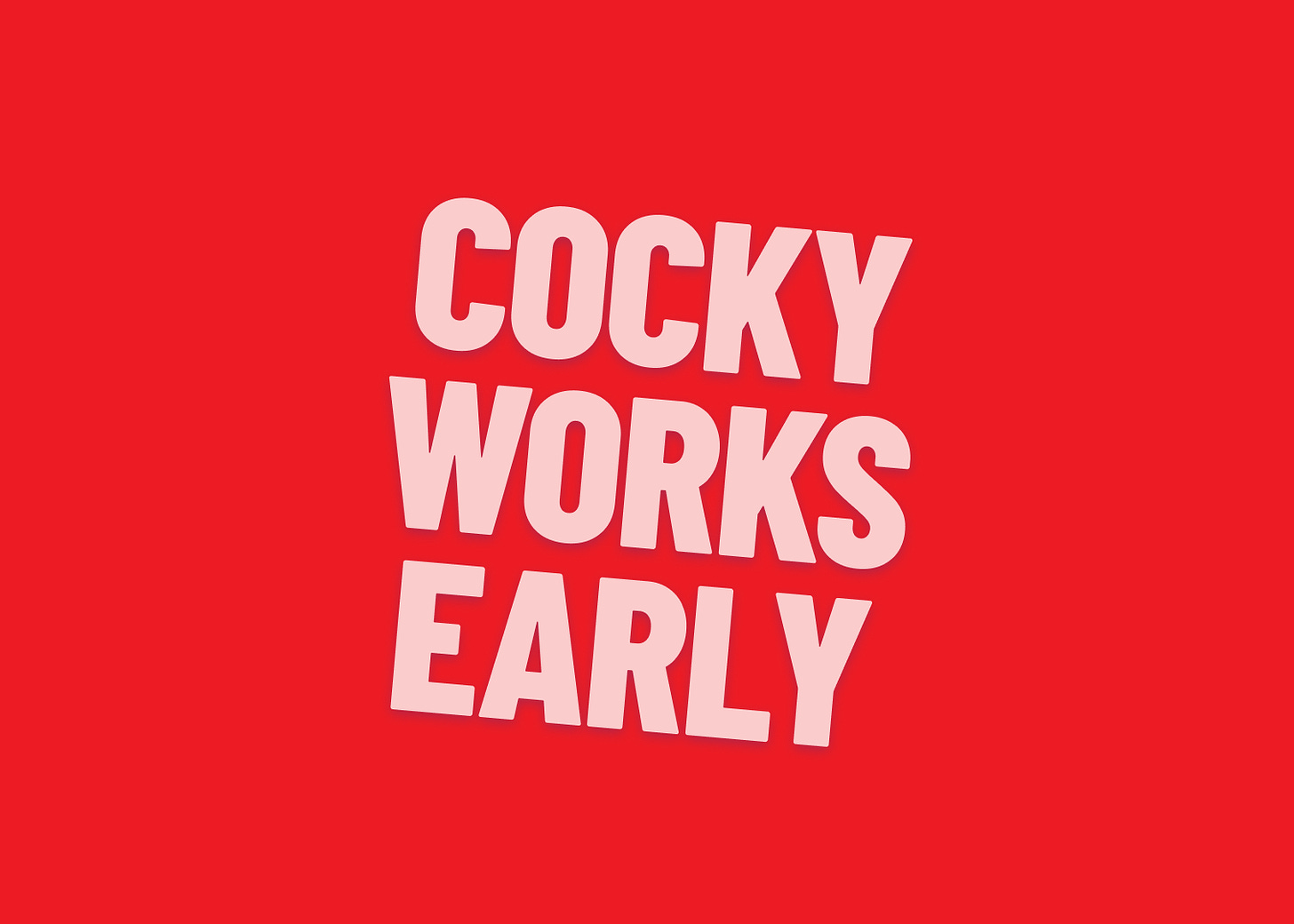The Curious Case of the Cocky Company
I meet a remarkable number of founders and would-be founders every week. The best predictor of early success is often confidence, often bordering on cockiness.
But here’s the issue: the same cockiness that gets your startup to lift off is precisely what can get you stuck on the runway.
Let me explain.
The "I know what I’m doing” trap
Early business success usually triggers a potent belief in founders: “Obviously my ideas work because the results prove it.” Sounds logical. But this mindset quietly kills introspection. Instead of asking hard questions like “What if we’re missing something fundamental?” the internal monologue becomes, “Just tweak the headlines, change the pricing, tune our outreach, we’re good.”
Here’s why that’s dangerous:
What gets you traction is rarely what gets you scale. Early wins almost always ride on a single, fragile growth channel. Maybe it’s an active LinkedIn presence and some network hustle. Sometimes it’s luck with SEO before Google shifts its algorithm. Or it could be connections from your last job that warm-charge your first ten demos.
Those levers work. Until they don’t. Networks run out. Algorithms change. Referrals dry up as you try to scale beyond your initial circle.
And this is where cockiness bites.
You can’t hack your way to growth
Here's what I usually see next:
“Let’s hire outreach agency and just get more meetings.” You get some activity, early pipeline stages looks full, but calendars remain empty.
“Let’s run paid campaigns.” There are plenty of performance agencies ready to help but your funnel isn’t built for trust, especially if you sell high-ticket offers, more eyeballs will not translate into serious pipeline.
“Let’s go viral on TikTok!” Few B2B buyers swipe up and suddenly sign a six-figure contract because of dance moves of your social media intern.
All of these last-mile tactics ignore the context and foundation necessary to turn glimpses of traction into systemized, sustainable growth.
The real question: are you actually building leverage?
If you’re at the stage of internal traction, with users, customers, and cash in the bank, it’s absolutely vital to squeeze every drop from your primary channel. Double down until you can’t any longer.
But if you want to move beyond that, it’s time to pause the “minor tweaks” thinking and ask deeper questions:
What really drove your current growth, and will it reliably get you to five or ten times more?
Are you overly reliant on a channel you do not control?
Do you have a repeatable, scalable way to generate interest beyond your immediate network?
Are those new leads converting, or did you just increase your webpage visits for a week?
Too often, strong early founders treat marketing like ordering takeout:
"Just get me a few meetings. Some ad clicks, please!" For bigger growth, you need actual strategy. This means thinking about resonant offers, credibility, and building real distribution channels.
What you should actually do
Two hard-earned lessons:
Scale what’s working until it breaks
If you want to truly grow, do not just swap tactics. Step back, get uncomfortable, and actually reassess your entire growth engine. Are you just delivering the offer, or are you deliberately building reputation, reach, and trust at the same time?
If you have early traction, congratulations. You've sprinted farther than most. Now is the time to use the humility and curiosity that got you here to prepare for the slow, steady marathon that builds real, sustainable scale.
And if you feel stuck, you can always schedule a call.
Have a great week!



